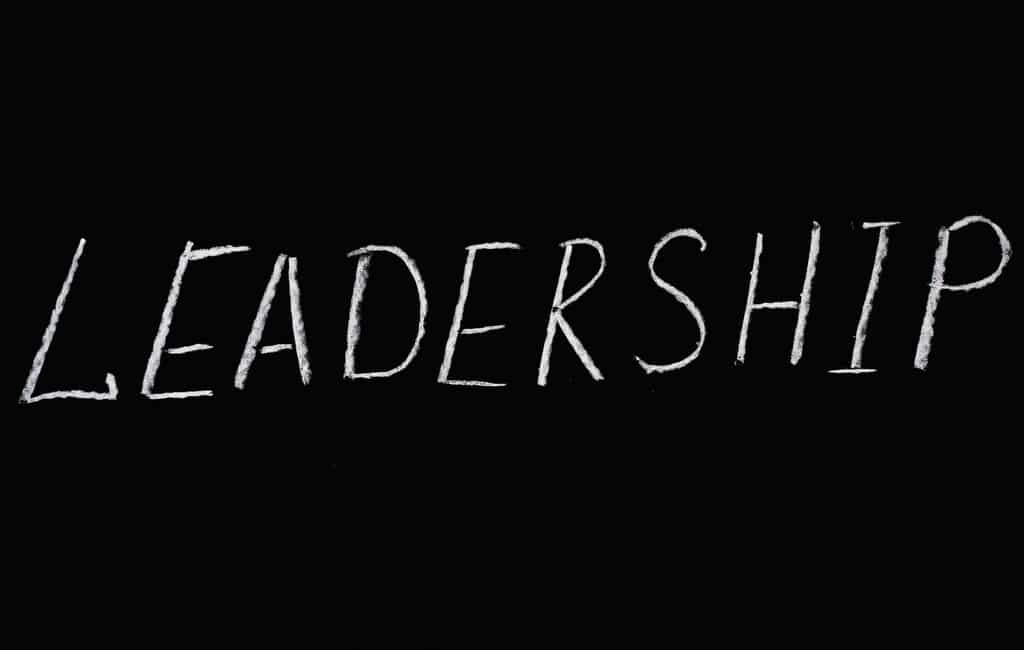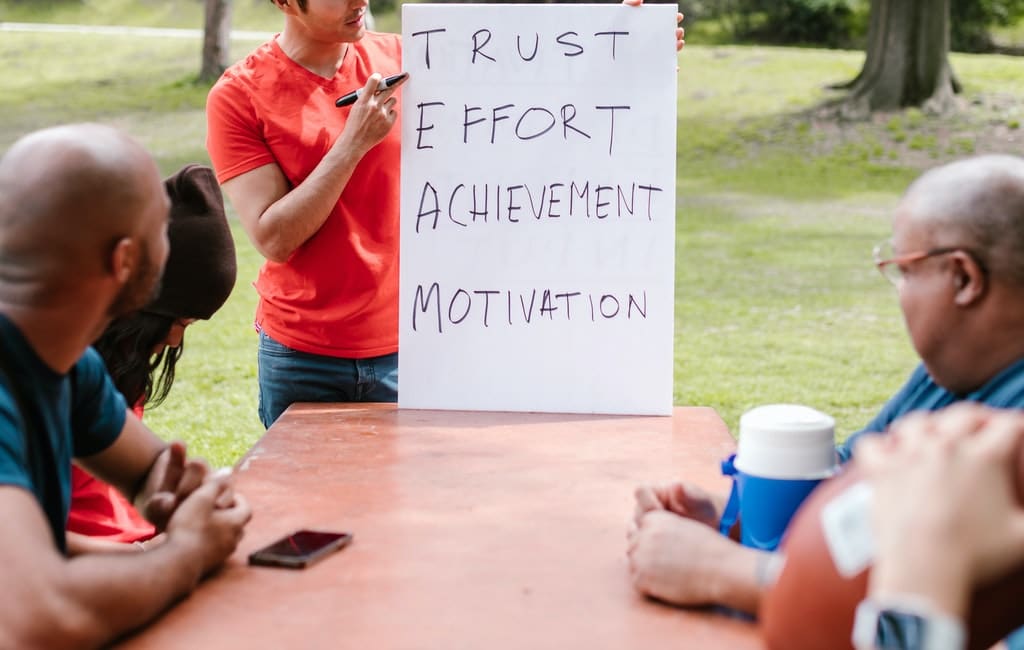Leadership refers to the action of leading a group or the capability to lead, influence, and guide followers or other members of an organization. Leaders help themselves and others to set the direction towards a goal, build an inspiring vision, and complete the goal. It is the potential to influence the behavior of others or the capacity to influence a group towards the realization of a goal.
Several experts from various leadership fields agree on some specific principles required for supervising and leading a group and team to greatness, but it all comes down to the main goal, getting the job done. Following is a list of the most common traits and qualities that make effective leaders
Concise and Smart Vision
An effective leader with vision has an obvious idea of what they want to do, where they want to go, and achieving their success easily. To become an effective leader, make sure to idealize and clear vision and goals with a passion so that your team understands how the individual efforts participate in the higher-level goals.
Empathy requires self-awareness. Research shows that people with low self-awareness are unable to attune to other people’s perceptions and feelings. Thus, a leadership role requires a specific tendency of empathy so the members can feel heard and seen.

- SELF-AWARENESS
Great leadership starts with self-awareness. Mindfulness is an essential trait of a great leader. By knowing your values, personality, habits, and how they affect your actions thoughts, and behaviors. Self-confidence is an important aspect of self-awareness because you have to trust yourself to judge your own emotions
- Self-management
It suggests that if you are unaware of what goes on within you, you are expected to be poor at managing others. Self-management refers to the ability to control your own emotion, so they don’t interfere with your brain’s thinking ability, to build, innovate, be determined on a goal, and have the zeal to accomplish.
- Lead by example
Act and demonstrate the conduct which you want people to follow. You should set high standards for even yourself if you demand and expect high from your team. Organizing your work and actions will help build your trust and ensure your team will follow your example.
- Believe in yourself
Believe that you are a leader if you bring the energy of a leader to a group, the group will come to accept your position. Before you walk into a room prep yourself up and tell yourself that you are a leader, you are confident, and that you have the skills to take on the toughest responsibilities. People will be able to see whether or not you are a leader just by your body language so your brain has to believe it first.
- HONESTY
Effective leaders are generally viewed as honest. They keep everyone abreast of what is going on – good or bad. It is also referred to as positivity and integrity. The ability to develop trust in followers and legitimacy based on honesty. They keep check on themselves, demonstrate sincerely, lead by their values, and rule by their principles.
- Emotional intelligence
Emotional intelligence encompasses managing relationships, and the most visible leadership skills are displayed in this domain. Skills including influence, persuasion, elaboration, communication, and teamwork are the primary requirement of an effective leader. Hence, a great leader is not only intellectually smart but also emotionally intelligent.
- Demonstrate integrity
A leader who possesses integrity works on their values to guide their conduct, decisions, and dealings with other people. They are clear in their deeds and a conviction, knowing what is right and wrong. Moreover, they are respected for being moral, genuine, consistent, and ethical. They are bound to their sayings, keep their promises, and have strong characters.
- Learn from other leaders
You should try to learn from leaders you admire, there are plenty of books available that detail lessons from the leaders throughout many industries, throughout history, and journeys that leaders are not all fun and games, take some time to read about the failures, the obstacles and the challenges that your favorite leaders have faced throughout time, you may find some common lessons and experiences that will help you on your journey to becoming a great leader.
- PASSION
Passion inspires and motivates others. No one has been inspired by a leader who is not passionate. Passion for success lessens the fear and encourages the leader to do more and to take necessary actions without any fear. Effective communication requires passion: When passion is infused into leadership, communication ideas and information are conveyed with more positive energy.

- Believes In Ideology and Steadfast
According to the CEO at PR Media Online, Matei Gavril, “a good leader must have faith in his beliefs”. You cannot expect the team to regard you if you don’t have strong faith in your ideas. Once the belief is developed, the leaders can build on it by additional skills such as good communication, a listening ear, modeling behavior and not being afraid to get their hands dirty, and remaining steadfast.
- Communicate effectively
An effective leader must have the most important skill of communicating concisely and clearly. Communication is more than merely listening attentively to others and responding to them properly. Effective communication also involves sharing valuable information, giving and accepting new ideas, and asking intelligent questions. It also includes clearing misunderstandings and being assertive about what you want to ask and do.
- Work to build skills
Leadership requires different skills depending on what industry you work in and what tasks you have at hand. Talk to leaders in your industry and learn what skills are necessary to get in the position you want to see yourself in then take the time to work and build on those skills.
Leaders often have to work behind the scenes to prepare themselves for a leadership role even if they are not being directly praised for any education or development required to build their skills.
- TEAMWORK
Teamwork and leadership have a direct impact on the ability of an organization to carry out its mission. Leadership is necessary for making sure that everyone in your team is active and doing their work in the right and same direction. Cooperation permits people to share their skills and energy to achieve objectives. A compelling leader works with this cooperation cycle.
- Be Respectful of the Team and Respectable Among Them
The ability to empathize, respect, and care for the team members is a great asset of an effective leader. Earning respect from the followers is a critical step to establishing a successful relationship with them. At the same time, you have to show that you care about their ideas and work. Being empathetic encourages a leader to understand the emotion of the individual to connect with them at their level.
- Recognize success
One of the most influential qualities of an operative leader is the frequent and consistent recognition of achievement. To make themselves flexible and put in their best efforts, they need to determine their work and efforts will be appreciated and valued. Find alternative ways to celebrate the victories and achievements of your team members, even if it’s through a simple ‘well done’ remark.
- Take up tasks
Take up more tasks if you can lend a helping hand. If another leader is delegating tasks that you know that you can excel in, you should go ahead and volunteer. The more you make yourself present in an organization, business, or team, the more people will get to know you and that they will know that they can rely on you even if you take on just small tasks at first, eventually you will build up to take more and more responsibilities
- Good at Making the Hard Choices
Great leaders are good at making hard choices, and in challenging times they do not hesitate to self-sacrifice to improve the lives of the ones around them. As managers or business owners, they know that it is not only their family that relies on them but also their staff’s families. Each worker is family to them.
- Empower others
Effective leaders understand it is essential for people to develop a sense of ownership over their work and their meaningful actions. Communicate the goals and deadlines with your team clearly and then provide them the authority and autonomy to plan how the task gets done. Challenge them with high expectations and appreciation to enhance creativity and innovation.
- Share ideas
Leaders have to be able to put a plan into place, they have to have a vision so don’t be afraid to share your ideas with your team or a group. Sharing your ideas is equivalent to taking up tasks. The more you are present within a team or a group, the more people will turn to you even if you don’t have a solution yourself you can find ways that your group can come up with a solution together.
